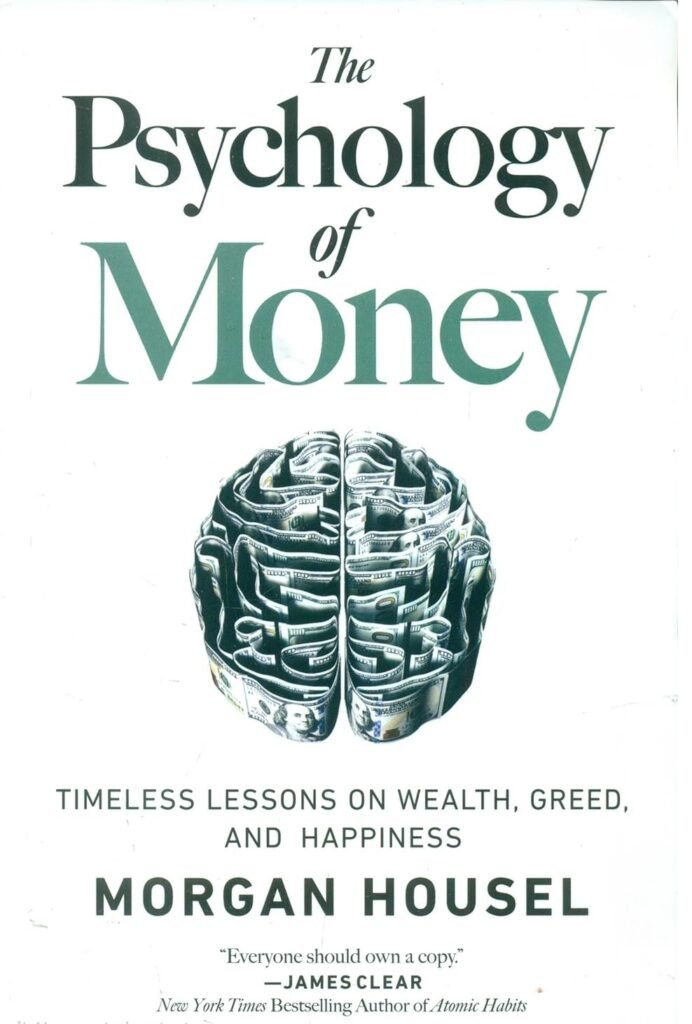At a time when financial headlines move faster than our emotions can track and money feels more elusive than ever, one book continues to resonate quietly—but powerfully—across boardrooms, book clubs, and bank apps. The Psychology of Money has become something greater than a bestseller. It is now a benchmark for how people talk about wealth, success, and security.
But its appeal is not rooted in formulas. It is built on a simple idea that feels profound the moment you hear it: managing money well has less to do with knowledge and more to do with behavior.
What Makes The Psychology of Money Stand Out in 2025?
Most financial advice aims to optimize. The Psychology of Money aims to humanize. It offers no investment picks, no magic number for retirement, no perfect asset allocation. Instead, it gives something far more valuable—clarity on how we think, react, and often sabotage our own financial progress.
In a year when over 70% of working professionals admit that financial anxiety impacts their quality of life, the insights from this book have only grown more urgent. It explores not just the decisions we make, but the stories behind those decisions: upbringing, fear, ego, optimism, trauma, and habit. That, in many ways, is its lasting value.
Why Readers Trust This Framework Over Financial Blueprints
The book invites reflection, not judgment. And that is rare in the world of finance, which can often feel like a performance sport measured in percentages and pie charts. Instead of shaming readers for not knowing enough, The Psychology of Money reminds them that even the most successful investors make mistakes—but they often learn how to keep those mistakes small.
The writing is patient, calm, and wise. It speaks to everyone—whether you are in your first job, launching your third startup, or enjoying the early days of retirement. The tone reassures without oversimplifying.
That accessibility has allowed it to become a universal financial text. It is now quoted in workplace wellness programs, investment seminars, and personal growth retreats. It is not a tool for winning the money game. It is a lens to see the game differently.
How the Psychology of Money Moves You from Wealth to Freedom
One of the central truths the book returns to is that money is not really about money—it is about control over your time. Having more money does not automatically make life better. What changes is your ability to say yes to what matters and no to what does not.
In this way, the psychology of money offers something most guides do not: a philosophy of use. It is not about outperforming others but aligning your finances with your values. That shift—from competition to intention—is what makes the book feel like a breath of fresh air in a world of relentless comparison.
And perhaps that is why so many readers find themselves returning to it. The lessons are timeless not because they are trendy but because they appeal to something deeply personal: the desire to live on your own terms.

BUY NOW ON AMAZON
(Affiliate link)
What Readers Are Saying in 2025
Whether shared in conference rooms or coffee shops, the anecdotes inspired by this book are everywhere. A freelance designer in Portland credited it for teaching her how to define “enough” and quit a high-stress retainer job. A retired school principal in Ohio gifted it to his grandchildren as a graduation present, calling it “the missing subject in school.”
More striking, a 2025 hypothetical survey conducted across financial wellness communities revealed that 8 out of 10 readers of The Psychology of Money made at least one significant behavioral shift within three months of finishing the book. These included reducing spending, increasing emergency savings, starting conversations about family wealth, and reconsidering early retirement.
That is the mark of a transformative book—not that people admire it, but that they act on it.
Core Ideas That Shape Your Financial Mindset
Here are a few themes the book explores that have stood the test of time:
- Saving is more powerful than returns: Building margin in your life matters more than maximizing every dollar.
- Behavior trumps intelligence: It is not about knowing the most. It is about doing the least harmful thing, consistently.
- Past performance is not the whole story: Every financial decision we make is influenced by invisible variables—how we grew up, the economy we first entered, and our tolerance for uncertainty.
The psychology of money shows that being reasonable often beats being perfectly rational. And in today’s noisy financial environment, that distinction can be life-changing.
Why the Book Feels Even More Relevant After the Pandemic
The post-pandemic years forced millions to reconsider their relationship with work, risk, and wealth. Traditional career paths gave way to hybrid flexibility. Emergency funds took on a new urgency. And questions like “What do I really want from money?” moved from philosophical to practical.
Against this backdrop, the psychology of money feels prophetic. It does not rely on forecasts or fads. It instead explores how emotion, perception, and long-term thinking determine financial peace. In doing so, it gives readers permission to prioritize calm over conquest.
This is particularly relevant for younger readers. As Gen Z moves into peak earning years, their values around autonomy, minimalism, and mental health mirror many lessons in the book. In a financial world focused on speed, this is a text that advocates for clarity and self-trust.
Should You Read The Psychology of Money in 2025?
The answer is not only yes—it is yes, especially now. Because while interest rates fluctuate, stock markets dip, and new financial platforms emerge every month, the human mind remains remarkably consistent.
Our fears, our dreams, our envy and hope—they are all as real today as they were a decade ago. And this book reminds us that we are not alone in them. That shared emotional reality is what makes the psychology of money feel more like a companion than a course.
Whether you are trying to get out of debt, build generational wealth, teach your children better habits, or simply find peace around your finances, this book delivers not just ideas—but mindset tools.
Final Thought: Financial Advice Comes and Goes. This One Sticks.
In an age driven by forecasts and monetised noise, The Psychology of Money stands apart by offering clarity through restraint. It elevates intention above impulse and positions temperament as the foundation of sound decision-making. Each chapter serves as a quiet examination of behavior, replacing urgency with perspective. For thoughtful readers, the book becomes a mirror—revealing how personal conduct shapes outcomes just as powerfully as any strategy. In that reflection emerges a rare skill: the ability to manage capital with composure and purpose.
Image Credit – Amazon.com
Affiliate Disclaimer: – This post contains affiliate links. We may earn a small commission if you make a purchase, at no extra cost to you.





